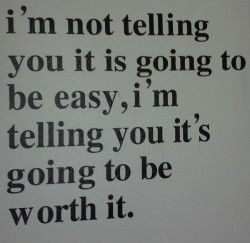OK, let’s get it out there.
I don’t want to manage information.
I really don’t.
And I’m sure many of you out there will agree with me.
I support government in managing information and ensuring the historical record, so I’m an information creator and user and an information professional. I exist in a world of perpetual contradiction…
I’m busy. I spend my days creating, processing, using, sharing, storing and talking information. My team has a way of working, a shared space to capture our work, and delivery channels through which to share it. I know what we’re working on, where it is and what it means to us. It works. For us. Sometimes I want to work on the move, drafting blog posts like this on a mobile device on a train. Sometimes I want remote access to our network so I can access the information my team are working on.
What I really want is a free ride: to work in a way that suits me and the work I do, to manage my work in a way that’s meaningful to me in locations I can access wherever and whenever I need to. I’m going to be a Dad soon and I imagine this will become even more important to me as I make the transition from the ‘9 to 5′ desk job to a new ’24/7’ role. I know I can work like this because I can take my digital world with me on a phone that’s more powerful than all the computers that put a man on the moon. I need to be flexible in how and where I work.
I can hear the howls of anguished records and information managers across the land, but wait.
Let’s look at this. I do manage my information. I understands the information that’s important to me, that meets my needs today, tomorrow, next week, for as long as it’s meaningful. I build Digital Continuity and information risk concerns into what I do and I consider sensitivity and personal data issues when appropriate.
Because I want to do the right thing. I want to meet my organisation’s information policies and processes, I don’t want to be contributing to an ever growing mound of digital landfill. I want to be supportive in as much as I am supported. I have to balance my desires with an understanding of my obligations and a means of fulfilling them; business and legislative.
This is reality not heresy? But I hope the title dragged you in.
Someone still has to map our work into the wider business context. Someone still has to ensure the value of the information is understood by the business, that it can make value-based decisions about disposing what we don’t need and keeping for the appropriate periods what we do. Working across technology, risk assurance and business services, delivering savings and efficiencies through managing storage and legacy systems. Someone has to provide the environment that allows me to do what I do at an operational level whilst ensuring I remain compliant with the organisation’s requirements. Because without that transparency, accountability, continuity, history are coasting along on the back of lucky searches.
But that someone is not me. Ask me what’s important about the information I create and it’s obvious: all of it. And it’s brilliant. Worth hanging on to just in case. No wonder business information systems the world over are struggling under the weight of duplicated and ephemeral information.
Perhaps what I really mean is that I don’t want to be actively thinking about managing information. I want it to just happen around me. And that’s a good thing.
This is the value our ‘anguished’ records and information managers bring. And we shouldn’t underestimate the challenge in meeting new technology, business and user requirements. The challenge of balancing what we want, need and have to do when they often seem to be contradictory. The challenge of providing the environments in which to operate in this new world of mobile, of cloud, of open standards, of organisational reform.
Make sure I understand, just don’t make me make those decisions.
The issue of what to keep and not to keep for digital records is very much the same as applied to paper records before the Grigg Committee in the 1950s where virtually everything was kept and no closure periods short of 100 years existed. The key point is that people are not sure exactly everything that might be needed in the future, for example the various committees that looked into Press freedom and the attempts to control the Press during the Second World War, do people remember Michael Foot’s speech about the possible detention of newspapermen under Section 18D of the Defence Regulations because the Government disagreed on a cartoon in the Daily Mirror or the Daily Sketch (I can’t recall which it was).
We might think we know what records are likely to be kept but there are the unsure records and to just keep it on the grounds of ‘it might be needed’ is going to lead to really difficult issues of selection let alone Freedom of Information requests, you only have to look at the paper records where there are sometimes three copies of the same papers transferred to TNA. In my view individuals and particularly those in high positions should be able to make a decision on what information to keep on the same basis as for example the design of a new IT system, it doesn’t sound to me like it is Rocket Science.